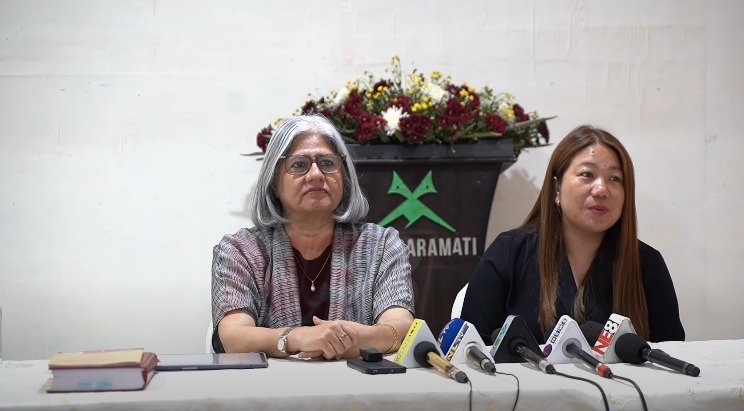The suspension of senior IAS officer Reny Wilfred in Nagaland has sparked significant public concern, following allegations of sexual harassment made by multiple female employees at the Investment and Development Authority of Nagaland (IDAN). The state government placed Wilfred under suspension on May 21 amid a criminal investigation, after the Nagaland State Women’s Commission (NSWC) escalated the matter to law enforcement authorities.
The suspension, however, has drawn criticism for its lack of clarity. Legal experts have pointed to the absence of specific charges or references to applicable legal provisions in the order, raising concerns about transparency and procedural lapses in handling a case of this gravity.
Details of the case were outlined during a press conference held at Hotel Saramati in Dimapur on May 24, where Supreme Court advocate Vrinda Grover and Nagaland State Commission for Women (NSCW) Chairperson W. Nginyeih Konyak jointly addressed the media. The NSCW, which has been actively supporting the complainants, also participated in the session, highlighting broader systemic issues related to workplace safety and justice delivery.
According to legal disclosures, the FIR registered against Wilfred includes charges under Section 74 (assault or criminal force to a woman with intent to outrage her modesty), Section 75 (sexual harassment), and Section 79 (gesture or act intended to insult a woman’s modesty) of the Bharatiya Nyaya Sanhita (BNS). Despite the serious nature of the allegations, the state’s official communication did not specify these sections, prompting criticism of an opaque approach that undermines public confidence and victim protection.
The incident has renewed scrutiny of the implementation of sexual harassment safeguards in government institutions. Although the Vishakha Guidelines (1997) and the Prevention of Sexual Harassment (POSH) Act (2013) mandate the establishment of Internal Complaints Committees (ICCs), many public bodies reportedly continue to ignore compliance, putting women employees at heightened risk.
Observers have also noted that the All India Services (Conduct) Rules require the suspension of any officer facing allegations of moral misconduct, emphasizing that such action is not discretionary but legally mandated.
Download Nagaland Tribune app on Google Play

Another pressing issue raised during the briefing was the lack of vulnerable witness deposition centers in most districts across Nagaland. These centers are crucial in ensuring that survivors of sexual violence can provide testimony without facing direct confrontation with the accused. The Supreme Court, in its Smruti Tukaram Badade vs. State of Maharashtra ruling (2022), had directed all states to establish such facilities. The continued absence of these centers in Nagaland has been flagged as a serious shortcoming that may impede justice for survivors.
As legal proceedings continue, Wilfred has filed a writ petition before the Kohima Bench of the Gauhati High Court seeking to quash the FIR filed on April 2. The case, which was listed for hearing on May 23, has been deferred to July 22 due to the reported bereavement of his senior counsel.
The NSCW, now formally included as a respondent in the case, has filed its response opposing the quashing of the FIR. The Commission has emphasized its commitment to safeguarding the rights of the complainants and ensuring institutional accountability.
Meanwhile, concerns have been raised over Wilfred’s earlier legal move to name three individual members of the Commission as respondents, a step viewed as an attempt to intimidate the statutory body and dilute its oversight role.

